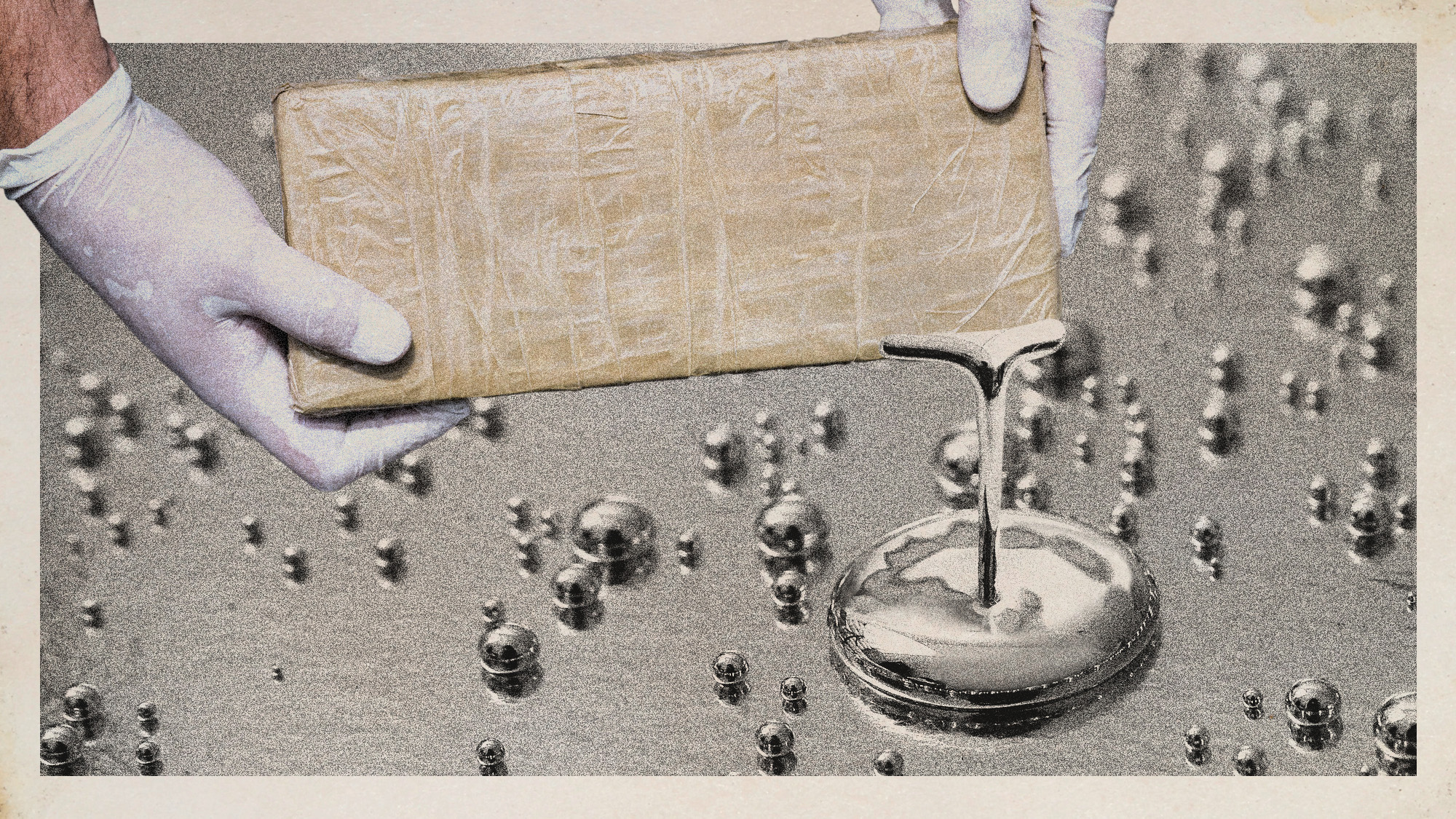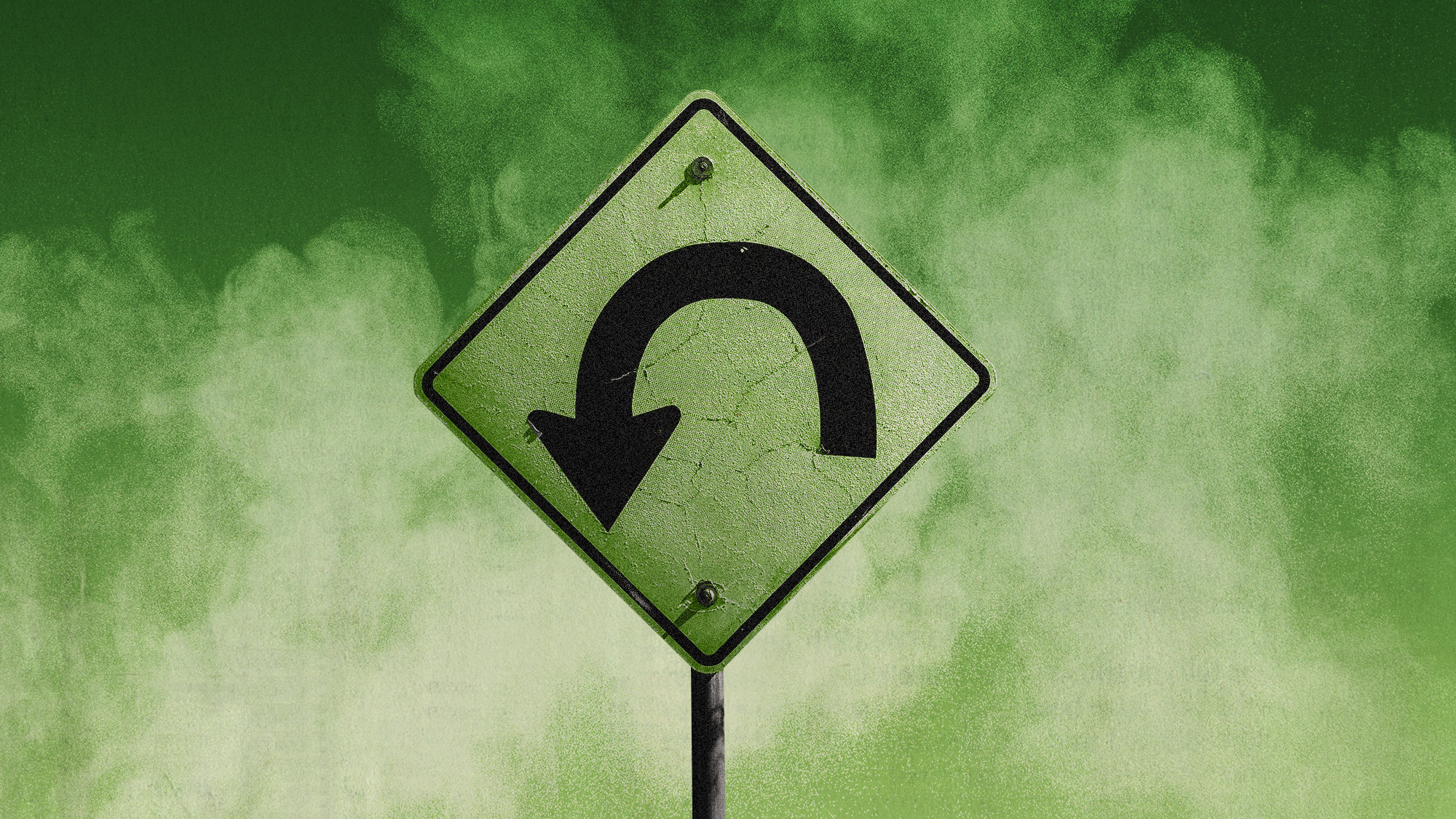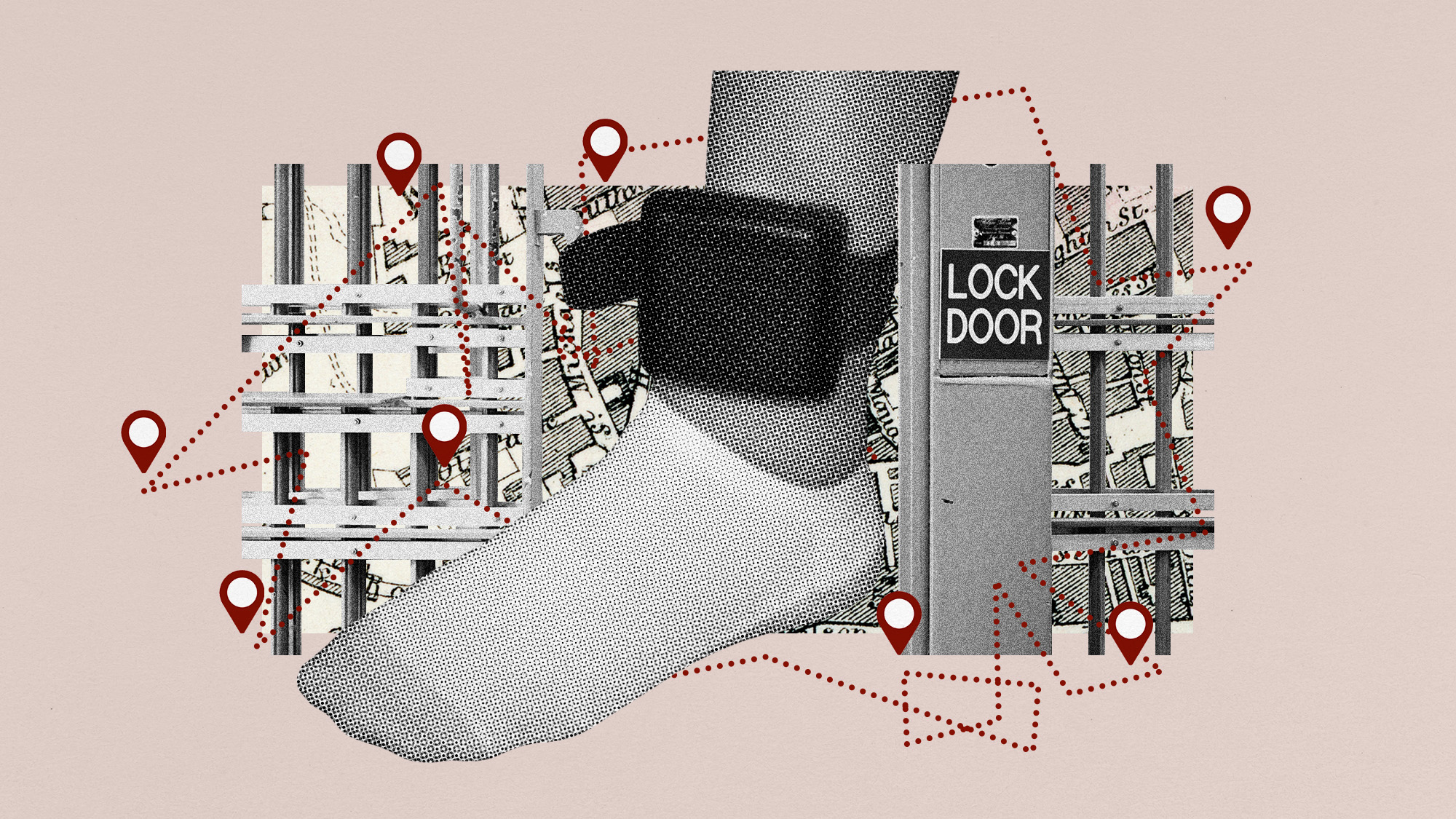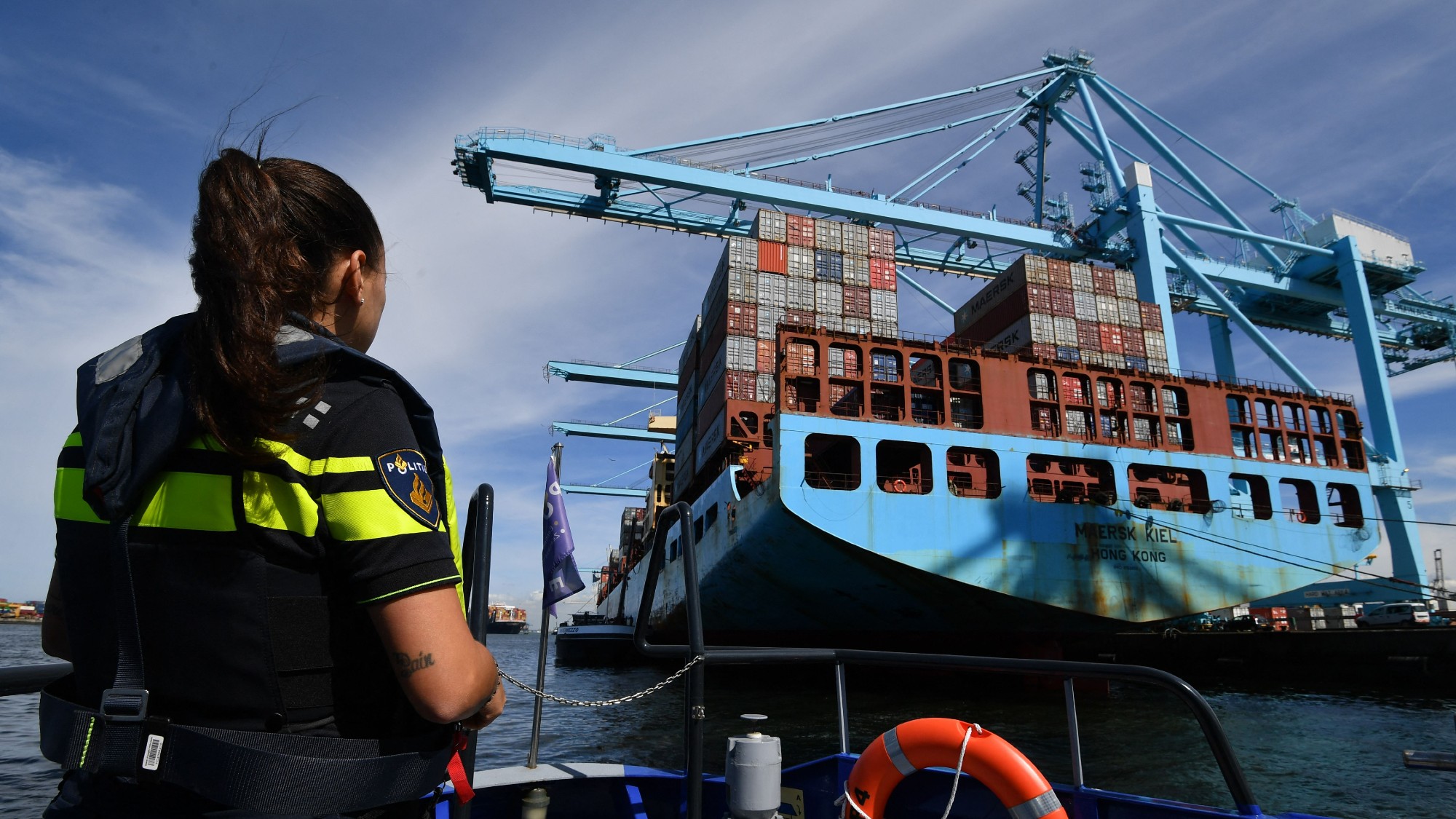The rise of legal cannabis
A growing number of states are legalizing recreational marijuana as sales soar. Will there be a hidden cost?

A free daily email with the biggest news stories of the day – and the best features from TheWeek.com
You are now subscribed
Your newsletter sign-up was successful
A growing number of states are legalizing recreational marijuana as sales soar. Will there be a hidden cost? Here's everything you need to know:
Where is weed now legal?
The nation has seen a seismic shift since Washington and Colorado became the first states to legalize recreational cannabis a decade ago. Rhode Island recently became the 19th state to end pot prohibition, joining such states as California, New York, Nevada, Virginia, Illinois, and Vermont. Another 20 states have legalized medical marijuana, including Mississippi, Missouri, and West Virginia. Legalization bills for recreational or medicinal marijuana are under consideration in at least a half dozen more states, including Pennsylvania, Kansas, and North Carolina. Some 44 percent of Americans now live in states that allow recreational cannabis use — and business is booming.
How big is it?
Last year, sales of legal cannabis hit $25 billion, and they're projected to top $40 billion by 2025 and at least $57 billion by 2030. One major reason states are jumping on the legal bandwagon is that it creates huge tax windfalls: Since licensed sales began in 2014, states have received $10 billion in various tax revenues, according to the Marijuana Policy Project. "It will be an economic engine," said New Jersey state Sen. Nicholas Scutari. Both Illinois and Massachusetts took in more tax dollars last year from marijuana than from alcohol sales; the $112 million Massachusetts collected more than tripled initial projections. And cannabis entrepreneurs are salivating over the official opening of the legal market in New York City, where the first legal sellers may be licensed by year's end and many city streets already reek of weed. "New York is going to be Amsterdam on steroids," said cannabis investor Jeanne Sullivan. But as "budtenders" at legal dispensaries do a boffo trade in gummies, tinctures, and high-grade sativa strains, some question whether there are underappreciated costs of legalizing cannabis.
The Week
Escape your echo chamber. Get the facts behind the news, plus analysis from multiple perspectives.

Sign up for The Week's Free Newsletters
From our morning news briefing to a weekly Good News Newsletter, get the best of The Week delivered directly to your inbox.
From our morning news briefing to a weekly Good News Newsletter, get the best of The Week delivered directly to your inbox.
What are the downsides?
Legalization, not surprisingly, leads to a lot more people getting stoned — for some, every day. The percentage of Americans over 26 who reported using cannabis in a given month doubled between 2010 and 2020, according to the National Survey on Drug Use and Health. In Colorado, one of the first states to legalize, 48 percent of cannabis users get high nearly every day. A 2019 study led by an NYU epidemiologist found adult marijuana use was 26 percent higher in legalized states compared with nonlegalized ones, and problem use among teens was 25 percent higher. The negative consequences of widespread, frequent use are on the rise. The percentage of motor vehicle fatalities involving cannabis more than doubled from 2000 to 2018, according to a recent analysis. It's "a huge, emerging issue," said Helen Witty, former president of Mothers Against Drunk Driving. Some studies have found evidence that cannabis use in people under 18 leads to stunted cognitive development and poor academic performance. Doctors are also sounding the alarm about mental disturbances linked to use of cannabis — in particular the hyperpotent extracts sold at legal dispensaries.
What's the connection?
Study after study has shown a link between marijuana use and schizophrenia and psychosis in people with a predisposition to mental illness. While these studies invite questions about causality, a panel of 16 experts convened by the National Academy of Medicine in 2017 judged cannabis use "likely to increase" the risk of developing those disorders, noting "the higher the use, the greater the risk." Nora Volkow, director of the National Institute on Drug Abuse, has said there is a "very significant rise in psychosis" connected to marijuana use. The staggering potency of marijuana concentrates such as candies and vaping oils — which can carry THC levels as high as 90 percent, compared with 5 percent in the pot smoked decades ago — is triggering psychotic episodes, say doctors. "Almost every day I see [such] a patient," said Brad Roberts, an emergency room physician in Pueblo, Colorado. Doctors also report growing cases of cannabinoid hyperemesis syndrome, involving intense, uncontrollable vomiting, and cannabis-use disorder, which the CDC defines as an inability to stop using the drug despite it causing "health and social problems." Up to 3 in 10 cannabis users become problem users, studies suggest. Dependency is "a greater risk than people assume," said Deborah Hasin, an epidemiologist at Columbia University.
What might be done?
Some states, including Washington and Colorado, are considering capping the potency of cannabis products — a move that's met with opposition from the cannabis industry. (Currently, only Vermont has a potency cap.) Some doctors and lawmakers are pushing for warning labels; one under consideration in California would cite a potential link to "psychotic disorders." Experts aren't calling for recriminalizing marijuana, but want more education about the potential downsides of frequent use. The concern, they say, is the message that getting stoned is just harmless fun or even good for you — a message the massive legal-marijuana industry is promoting. The risks "are being hidden," said Roneet Lev, an addiction specialist at Scripps Mercy Hospital in San Diego. "I want the public to make informed decisions."
Federal law vs. the states
While one state after another greenlights legal weed, federal law hasn't budged. Despite fervid lobbying by legalization advocates, marijuana remains classified as a Schedule 1 drug, alongside heroin and LSD. In April, the House, on a largely party-line vote, passed the Marijuana Opportunity Reinvestment and Expungement Act, which would legalize cannabis nationally and expunge convictions for cannabis-related offenses. A Republican, Rep. Nancy Mace of South Carolina, has introduced a more limited legalization bill that's drawn support from the conservative group Americans for Prosperity. Senate Majority Leader Charles Schumer has called nationwide legalization "a priority," but few expect any legalization bill to pull the 10 Republican votes needed for Senate passage. President Biden has failed to back legal weed, and early in his term sent something of a message by dismissing five White House staffers who tested positive for marijuana use. Still, advocates believe eventual federal legalization is inevitable given the cultural shifts around cannabis. "I think the momentum is there," said Steven Hawkins of the U.S. Cannabis Council.
A free daily email with the biggest news stories of the day – and the best features from TheWeek.com
This article was first published in the latest issue of The Week magazine. If you want to read more like it, you can try six risk-free issues of the magazine here.
-
 How the FCC’s ‘equal time’ rule works
How the FCC’s ‘equal time’ rule worksIn the Spotlight The law is at the heart of the Colbert-CBS conflict
-
 What is the endgame in the DHS shutdown?
What is the endgame in the DHS shutdown?Today’s Big Question Democrats want to rein in ICE’s immigration crackdown
-
 ‘Poor time management isn’t just an inconvenience’
‘Poor time management isn’t just an inconvenience’Instant Opinion Opinion, comment and editorials of the day
-
 Mexico’s forced disappearances
Mexico’s forced disappearancesUnder the Radar 130,000 people missing as 20-year war on drugs leaves ‘the country’s landscape ever more blood-soaked’
-
 Illicit mercury is poisoning the Amazon
Illicit mercury is poisoning the AmazonUnder the Radar 'Essential' to illegal gold mining, toxic mercury is being trafficked across Latin America, 'fuelling violence' and 'environmental devastation'
-
 Thailand is rolling back on its legal cannabis empire
Thailand is rolling back on its legal cannabis empireUnder the Radar Government restricts cannabis use to medical purposes only and threatens to re-criminalise altogether, sparking fears for the $1 billion industry
-
 Narco subs are helping to fuel a global cocaine surge
Narco subs are helping to fuel a global cocaine surgeThe Explainer Drug smugglers are increasingly relying on underwater travel to hide from law enforcement
-
 Mexico extradites 29 cartel figures amid US tariff threat
Mexico extradites 29 cartel figures amid US tariff threatSpeed Read The extradited suspects include Rafael Caro Quintero, long sought after killing a US narcotics agent
-
 'Virtual prisons': how tech could let offenders serve time at home
'Virtual prisons': how tech could let offenders serve time at homeUnder The Radar New technology offers opportunities to address the jails crisis but does it 'miss the point'?
-
 Inside Marseille's deadly drug wars
Inside Marseille's deadly drug warsThe Explainer Teenage hitmen recruited through social media are lured by money and gang 'brand'
-
 Europe's drug gangs in the spotlight
Europe's drug gangs in the spotlightThe Explainer The illegal narcotics trade is fuelling a surge in gang violence across the continent